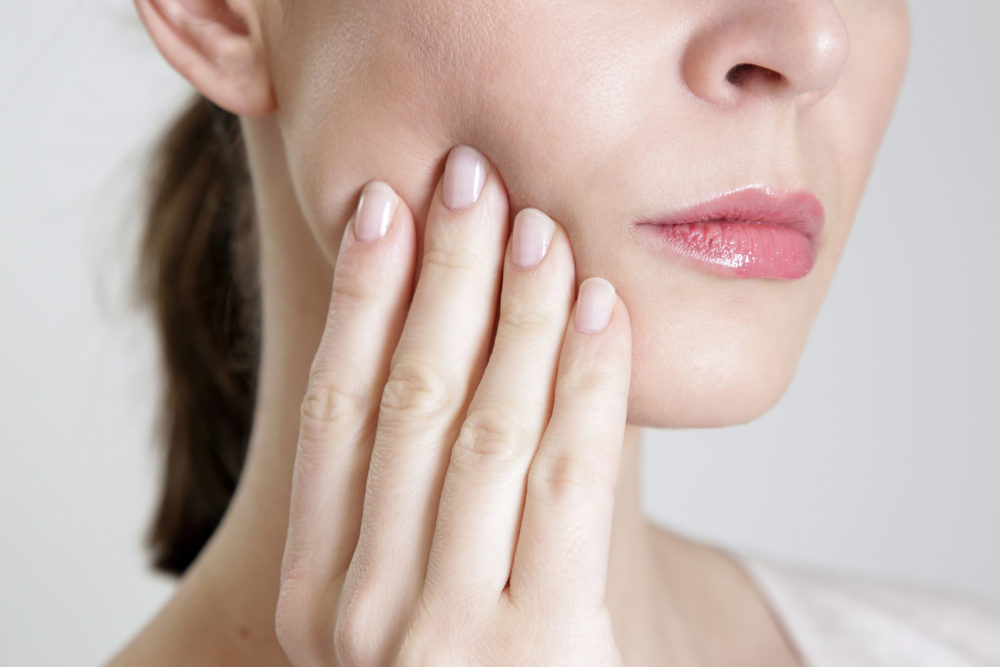
March 26, 2019
Causes, Symptoms, and Treatment of Tooth Grinding (Bruxism)
Bruxism, a condition involving grinding of the teeth or extreme clenching of the jaw, is the most destructive activity your teeth can experience. You may unconsciously clench your jaw while awake, and/or clench your jaw or grind your teeth while sleeping.
Symptoms of bruxism.
Since bruxism is largely unconscious, it’s only once symptoms are apparent that most people become aware that they are clenching or grinding. Your dentist may also notice the negative effects when examining your mouth during a check-up. Symptoms include:
- consistent jaw pain or soreness; tired, aching jaw muscles
- pain while chewing, biting, or yawning
- earache without an infection
- tooth sensitivity
- headaches
- worn, cracked, or broken teeth or restorations
If you are experiencing these symptoms, book an appointment to see your dentist.
Causes of bruxism.
It can be difficult to pinpoint the exact cause of your bruxism. Some possibilities may be:
- Stress or anxiety. Try to make note throughout the day of whether you are clenching your jaw, and if so, actively relax your jaw muscles. Positioning the tip of your tongue between your front teeth can help to train your jaw muscles to relax. You can also try holding a warm washcloth to your jaw muscles to help them relax, particularly before bedtime. Exercise during the day can also be very useful in alleviating stress and associated bruxism. Your dentist may recommend a night guard appliance.
- Bite issues. Improper bite and misalignment of teeth can cause you to grind your teeth at night. Your dentist may recommend orthodontic treatment or other corrective treatment such as replacing a defective restoration.
- Medications and medical conditions. Bruxism may be a side effect of some medications, such as certain antidepressants. Other conditions or disorders like Parkinson’s disease, dementia, epilepsy, and even dehydration have also been associated with bruxism. Be sure to tell your dentist if you are taking medications or have a medical condition.
- Sleep disorders. Bruxism is more common in patients who experience other sleep disorders, such as sleep apnea.
- Caffeine and alcohol. These substances tend to intensify sleep bruxism, and it can be useful to limit or even avoid these, particularly nearer to bedtime.
Treatments of bruxism.
Treatment will often depend on the underlying cause. Your doctor may suggest:
- Stress management.
- Avoiding caffeine and alcohol in the evening.
A custom nightguard, or bruxism appliance. This is a thin, transparent appliance that fits over your teeth and protects your teeth while you sleep. Read more about nightguards for bruxism here.
Bruxism and children.
Some children experience bruxism, but normally kids grow out of this without intervention. Children are more likely to grind their teeth while sleeping than to clench or grind while awake, and this habit most often occurs when either primary or permanent teeth are emerging. However, it’s important to note that other causes of bruxism such as those listed above can apply to children as well, so if you suspect that your child may be grinding his teeth, it’s best to bring him in to see your dentist.
Treat bruxism to avoid future issues!
Prolonged bruxism can lead to temporomandibular joint disorder as well as prolonged pain in your jaw, neck, and face, and long-term damage to your teeth. If you think you might be clenching your jaw or grinding your teeth, book an appointment to talk to us and learn more.